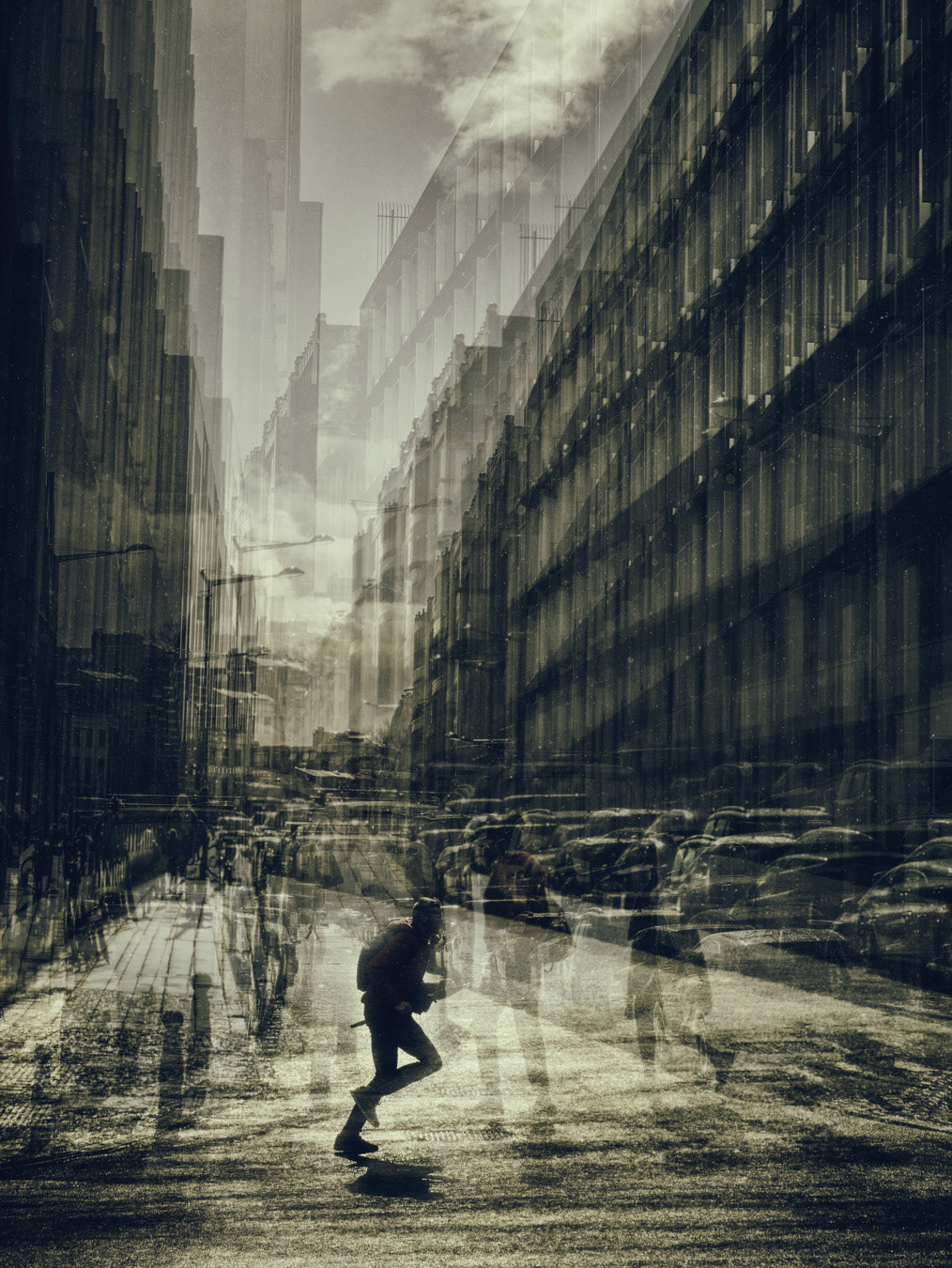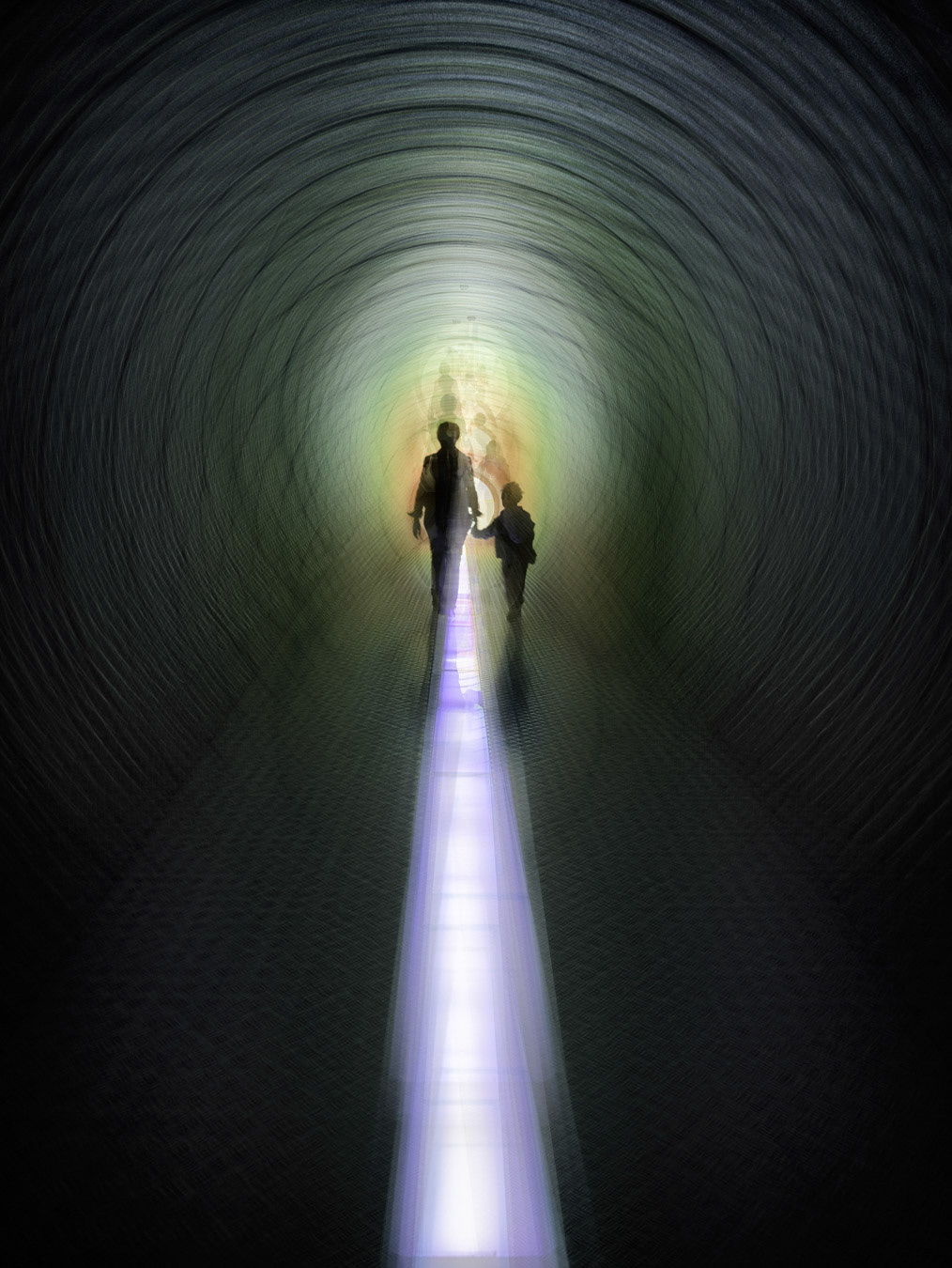Week 1 - Experimenting with experiments
 Instability series by Thomas Vanoost
Instability series by Thomas Vanoost
=^..^======^..^==^..^=====^..^==^..^======^..^=
It's mid-January. It's the time of the year when most of our new year's resolutions have withered and shriveled and will fall off soon.
December last year, you might have come across people advising you to not make 'new year's resolution' but use the words 'Goals' or 'Intent'. I shall joint that bandwagon, albeit late and share my preference: 'Experiment".
"New year's experiment" - apart from sounding automatically cool, it is such a freeing word. Why? Since you ask, here are my translations of the words:
Resolution: Definition: "a firm decision to do or not to do something" Which means: "I will do this. If I don't I will be forever a wuss and the gods will smite me from this earth'
Goals: Definition: "the object of a person's ambition or effort; an aim or desired result" Which means: "this is what I want. It is measurable and achievable. When I reach this point, I'm done. If not I'm a weakling."
Intent
Definition: "resolve or determination to do (something)" Which means: "Yeah, I'll do this. But it's totally cool if I don't even try to do it. I rock anways!'.
Now, experiment - oh boy!
Experiment Definition: "try out new concepts or ways of doing things" and Definition: "a scientific procedure undertaken to make a discovery, test a hypothesis, or demonstrate a known fact" Which means: I'm going to do this thing. I think by doing this I will be/learn x-y-z. If the experiment fails, then I'll learn something anyway. Experiment also has a built-in timeline. You cannot run an experiment for ever. And an experiment takes some setting up. It requires analysis at the end.
So yeah, experiment is my choice of word this year and it should be yours too! And like me, you should use it more in your mental narratives and conversations. Why not experiment with it?
=^..^======^..^==^..^=====^..^==^..^======^..^=
Newsletter
And here is one of my experiments in the Year of the Turtle™. - The Newsletter Experiment - inspired by Robin Sloan's call to write more newsletters in this post
I practiced writing a couple of newsletters so far this year which have not seen the light of the internet. That gave me the confidence to go for this. So, what does this mean?
- I'll send out a newsletter every week, on Sundays.
- This will go on for 25 newsletters - at which point I'll call it a season.
- All issues will also will be available in my 2020 workspace at Year of the Turtle
So what I think will happen with this newsletter experiment?
- I think I am going to struggle with what to write
- I'll be dancing with my Resistance every week. It will be a struggle to actually put this thing out
- I'll create a habit of creating and sharing
- I'll learn to separate writing mode with the editing mode when creating.
- I'll hear more from people!
=^..^======^..^==^..^=====^..^==^..^======^..^=
Linear time vs Circular time
Austin Kleon's post , recommended to me by Jocelyn Glei's newsletter in which he quotes Ann Friedman who quotes Olga Tokarczuk’s 2018 novel Flights.
Is time a spiral where we go through different flavors of similar things, iterating and improving and learning at each pass? Or is it linear where we start and there is an end, and we will never have the same opportunity again? Once time, opportunity is lost, it is gone, and there are no second chances?
Do we need to choose one view over the other? What do we gain and lose from each perspective?
=^..^======^..^==^..^=====^..^==^..^======^..^=
 Instability series by Thomas Vanoost
Instability series by Thomas Vanoost
=^..^======^..^==^..^=====^..^==^..^======^..^=
Reading Experiments
I finished the book Stubborn Attachments by Tyler Cowen, book club read in the Farnam Street Virtual Book Club. Tyler lays out a moral, ethical philosophy based on economic growth. This was a tough read for me. To really understand it, you need base knowledge of moral philosophies, ethical philosophies and economic theories - which I don't have.
However, this made it a good candidate for an experiment on how to read. I bought the kindle version, converted it into a PDF and read it on my Ipad. As I was reading, I used the Apple Pencil to free-hand annotate the PDF - like I would in a physical book. And additionally, I bought the audiobook. When I was driving , I listened to the audio versions of the book. Why? I want to know if
- A multi-sensory approach - reading, writing, annotating will help me understand and absorb more of a hard book (or any book)
- How does a high-tech approach of reading a PDF on an Ipad with freehand annotations with an apple pencil compare to reading a paper book with pencil in hand?
And the results this time: Yes and No. Maybe a multi-sensory approach is good. It feels that way. But I don't know how to measure it other than subjective comparison. The high-tech version feels onerous. However, just trying it once is not conclusive enough for me. And, it might be better to separate the two and try one at a time.
=^..^======^..^==^..^=====^..^==^..^======^..^=
More reading - the art of that is
While I'm writing about reading, last week, I finished the "The Art of Reading" course at Farnam Street . I was first alerted to the fact that there is more to reading than I know through the articles at franam street.. This led me down the rabbit hole that lead me to the excellent (but published in 1972) book called "How to Read a Book".
When I read that book last year, I made a bunch of annotations, took a bunch of notes and put a few tactics into practice. I was planning to read the book again this year, to see where I am now, and what other tactics I can implement this time around. Luckily, TAOR was released to all the Farnam Street Learning Community members this month. The course was great - it is an excellent distillation of the book along with inspiration and methods from elsewhere..
If you are curious about reading, especially how we read and what is considered 'better' reading, I highly recommend checking out the [blog posts]((https://fs.blog/how-to-read-a-book/).
=^..^======^..^==^..^=====^..^==^..^======^..^=
 Instability series by Thomas Vanoost
Instability series by Thomas Vanoost
=^..^======^..^==^..^=====^..^==^..^======^..^=
Podcast - Dolly Parton's America
This week I listened to the last episode in the podcast series 'Dolly Parton's America'. I barely knew who Dolly Parton was before this podcast. But now I do, and I might even be listening to her music.
The podcast series is entertaining, informative and riveting. I learnt that that Nelson Mandela used to listen to Dolly Parton in prison, that immigrants resonate with her music, and so do LGBTQ folks. Whaaaat?
My favorite episode of the series was "Neon Moss"
TODO quote from dolly parton's america
=^..^======^..^==^..^=====^..^==^..^======^..^=
Your 2010s
This week, in my email, I got Kent C. Dodd's post about his '2010s Decade in Review'.
What an absolutely great idea! After reading a few paragraphs, I decided to start working on my own review - and am still working on it.
What does the last decade look like? What are the high points you remember? Your achievements, events and things which left such an impact that you still remember, your losses? How has your life changed over the last decade?
This review is turning out to be very time consuming, but very rewarding. You should try writing your own!
=^..^======^..^==^..^=====^..^==^..^======^..^=
 Instability series by Thomas Vanoost
Instability series by Thomas Vanoost
=^..^======^..^==^..^=====^..^==^..^======^..^=
Bad Joke for the week
What did the blanket say as it fell off the bed? "Oh sheet!"